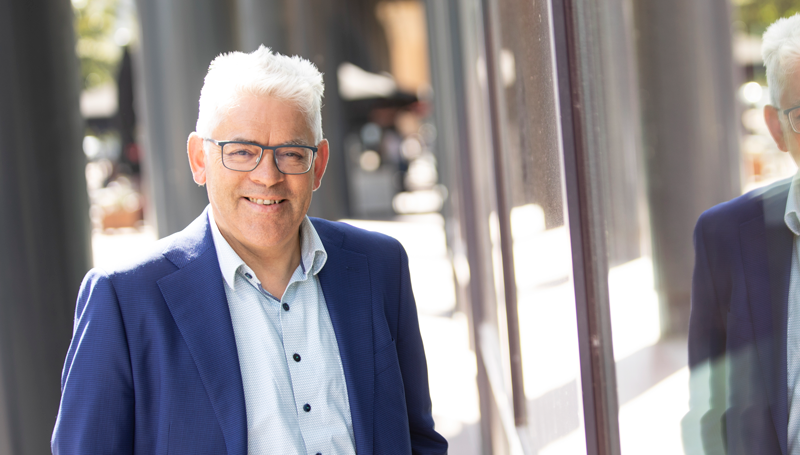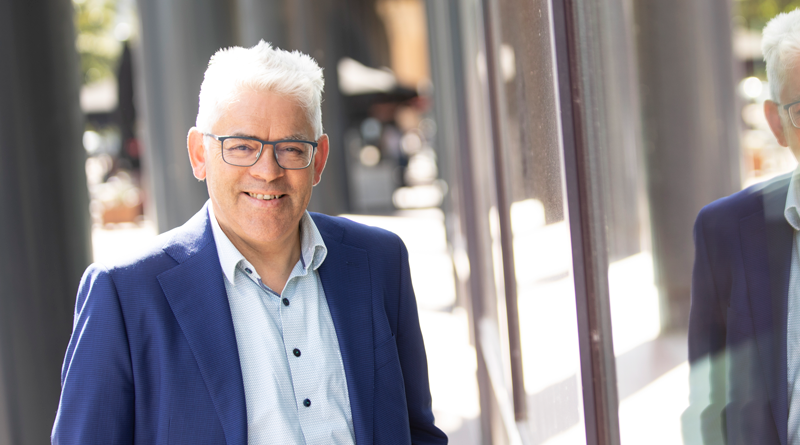EMPLOYERS AND EMPLOYEES SHOULD PROMOTE SOCIAL DIALOGUE MORE TOGETHER

On 3 May 2020, in the middle of the coronavirus crisis, Rudi Delarue took up his position of president of NAR (Belgian national labour organisation). He breathes social dialogue and helped achieve concrete agreements on a national, European and international level. During our conversation, he emphasised multiple times the actual added value of social dialogue and he illustrated the importance for our work and the way in which we shape our lives in Belgium and Europe.
“I will not easily forget the moment I started this job. At that time, the social partners were working together with the government to help employees and employers deal with the difficult coronavirus period. We had daily video calls, just like so many among us did. For the first time, we negotiated CLAs electronically.” CLA 149 about telework during coronavirus was drawn up in that period.
No certainties without rules
At NAR, trade unions and employers have structural consultations at a national level about labour, employment and social security. It is the place where CLAs are drawn up that apply to all the employees and employers in our country. “A lot of rules about labour law and protection at work are based on the work and the unanimous advice of the social partners at NAR. For example, the rules about labour agreements, holidays, working hours, maternity protection, basic provisions on well-being at work, privacy at work, end-of-career time credit, etc.”
“No certainties without a regulatory framework, neither for employees nor for employers,” Rudi adds. Within NAR, social partners also develop frameworks via national agreements: “Examples include the minimum wage, CLA 5 on the competencies of trade union representatives and CLA 9 on the information and consultation within companies and institutions.” There is also a close interaction between the interprofessional frameworks and the agreements within industries and companies. However, continuous updates of the existing rules and practices are still required. Social dialogue is important here as well.”
Not an appealing image
Despite its great relevance, social dialogue is not very appealing and is often presented in a simplified manner, according to Rudi. That has an impact on the credibility and the support base. “Social dialogue is often talked about in a very elementary way in general media, social media and politics. It is often presented as slow and outdated. The same opinion makers, including from the academic world, get a forum again and again, and mix facts with personal opinions. The existing scientifically based story about the added value of good labour relations at a national/industry/company level deserves more attention.”
However, social dialogue makes the difference, Rudi explains. “Policy makers who make labour legislation without the social partners often do not succeed. For example, the ‘cash for cars’ arrangement was annulled by the Constitutional Court, just like the arrangement about association work, because it violates the constitution, European law and international obligations.”
“Social partners could do more to show that social dialogue continues to be very relevant.” Rudi agrees that social media and some lobby groups give them a hard time. “Yet, there is space to improve the general discourse together and make the added value of social dialogue tangible.”
Coaching
The new chair of NAR has a lot of experience. He got to know several executives and HR insights. The executives who inspired him the most, were coaches who paid attention to the qualities, knowledge and experience of their employees. “I have met a lot of executives on different levels. Some of them want to change everything without finding out what the strong and weak points are first. I do not like executives who are friendly to their superiors but not to the people under them. He points out the importance of a decent policy framework on supportive leadership.
“Several CLAs and EU framework agreements contain references. An intergenerational personnel policy, stress policy, digital transformation, etc. are all things that cannot work without coaching and guidance.”
Before Rudi came to NAR, he had been active for many years on a European and international level. Shortly before he changed jobs, he worked on the Brexit agreement on labour and social standards. He helped integrate labour standards in and the involvement of social partners in trade agreements. In Europe, social dialogue has become more important, which is partly thanks to the Belgian social dialogue, according to Rudi. “Countries such as the Netherlands, Luxembourg, Spain, Portugal and Italy are interested in our national framework on telework. Let’s start to emphasise what does work and be less modest.”
The social partners have a lot of work to do in the next months, such as the gender dimension in the leave system, the intergenerational career approach, retirement, telework, restructuring because of Covid or the climate, the implementation of existing proposals about “return to work” for long-term sick employees, socially responsible entrepreneurship and sustainable mobility. The agenda remains quite full.
Never Work Alone 2021 | Author: Sandra Vercammen | Image: Daniël Rys

